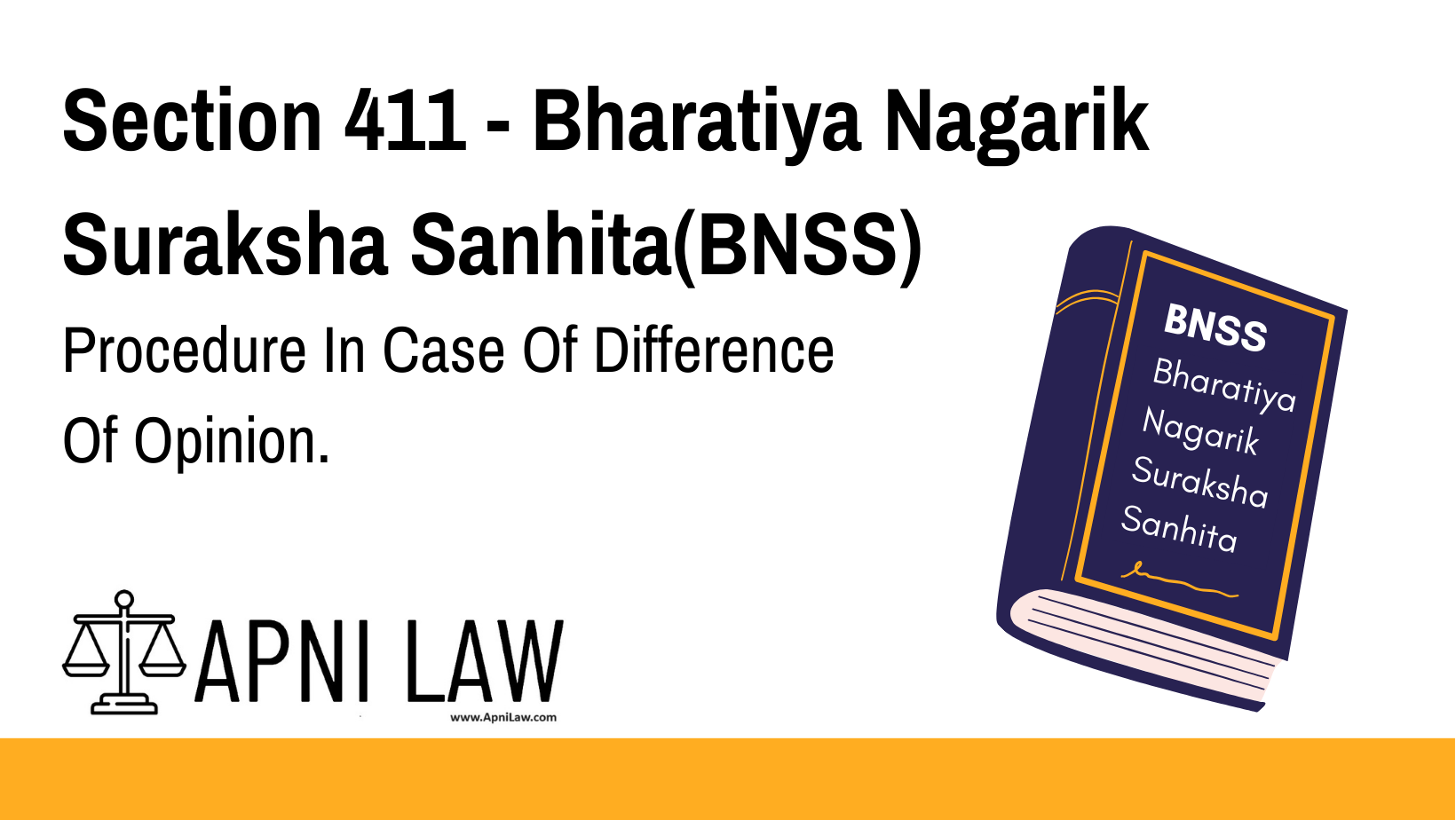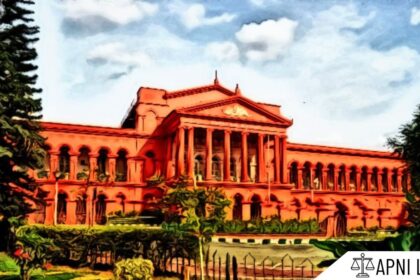Code: Section 411 BNSS
411. Procedure in Case of Difference of Opinion
Where any such case is heard before a Bench of Judges and such Judges are equally divided in opinion, the case shall be decided in the manner provided by Section 433 BNSS.
Explanation of Section 411 BNSS
Section 411 of the Bharatiya Nagarik Suraksha Sanhita, 2023 (BNSS) deals with situations where a Bench of High Court judges is equally divided in opinion while deciding a case. In such cases, the procedure laid down in Section 433 BNSS must be followed.
Key Provisions
- Applicability:
- Applies when a case is heard before a Bench of multiple judges.
- When the judges on the bench have equal but differing opinions (e.g., a 2-judge bench with a 1-1 split), this section is invoked.
- Resolution of Dispute:
- Instead of an immediate final judgment, the case will be decided in accordance with Section 433 BNSS.
- This section provides the method to break the deadlock.
- Ensuring Fairness:
- The provision ensures that no case remains undecided due to a tie in judicial opinion.
- It provides a structured way to resolve differences through additional judicial intervention.
Illustrations
Example 1: Equal Division in a Murder Appeal
- A two-judge bench of the High Court hears an appeal against a conviction under Section 302 BNSS.
- One judge favors upholding the conviction, while the other judge believes the accused should be acquitted.
- Since the judges are equally divided, the matter is referred for resolution as per Section 433 BNSS.
Example 2: Sentencing Disagreement in a Financial Crime Case
- A Bench is hearing an appeal in a financial fraud case under Section 420 BNSS.
- One judge wants to reduce the sentence, while the other judge believes it should be increased.
- Due to the difference of opinion, the procedure outlined in Section 433 BNSS will be followed to resolve the dispute.
Common Questions and Answers on Section 411 BNSS
1. What happens if judges are equally divided in a High Court case?
If judges hearing a case have an equal division of opinion, the case is decided as per the procedure mentioned in Section 433 BNSS.
2. What does Section 433 BNSS say about resolving differences?
Section 433 BNSS allows for the case to be referred to a third judge, or for the Chief Justice to assign the matter to a larger bench.
3. Does Section 411 BNSS apply only to criminal cases?
While it is primarily designed for criminal cases under BNSS, similar principles may apply in civil cases as well, following established judicial practice.
4. Can a case be re-heard due to a split decision?
Yes, in some cases, the Chief Justice may assign the case to a larger bench to ensure a majority decision.
5. Does this rule apply to Supreme Court cases?
No, Section 411 BNSS applies specifically to High Court benches. However, the Supreme Court has its own mechanisms for handling split decisions.
Conclusion
Section 411 BNSS ensures that cases do not remain undecided due to judicial deadlock. By referring such matters to be resolved under Section 433 BNSS, it guarantees a fair and structured resolution process.
For more legal insights, visit ApniLaw! 🚀








